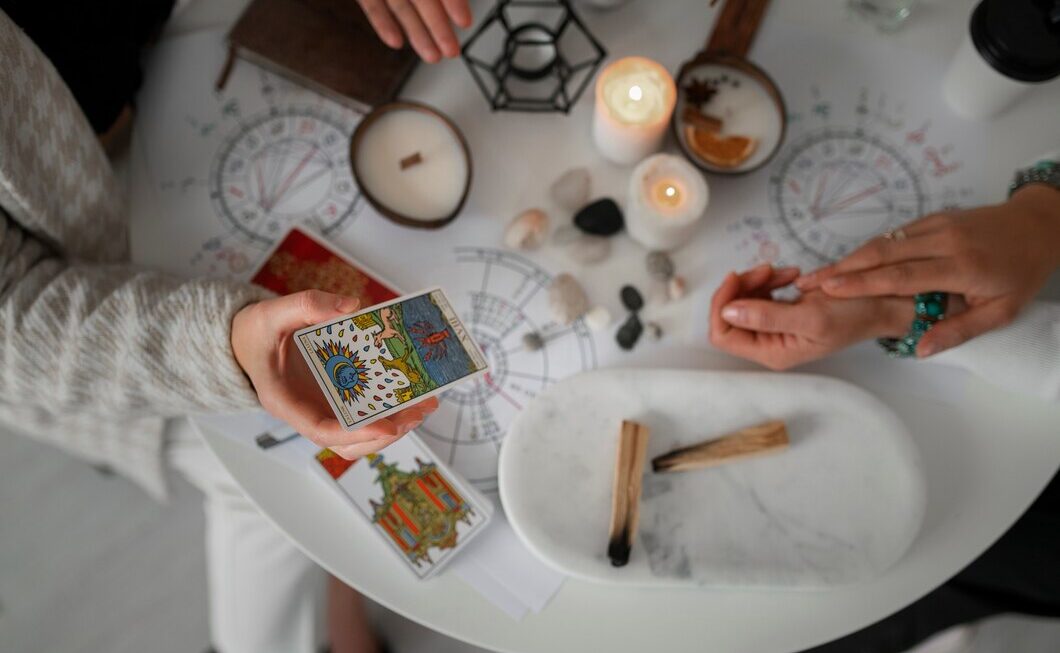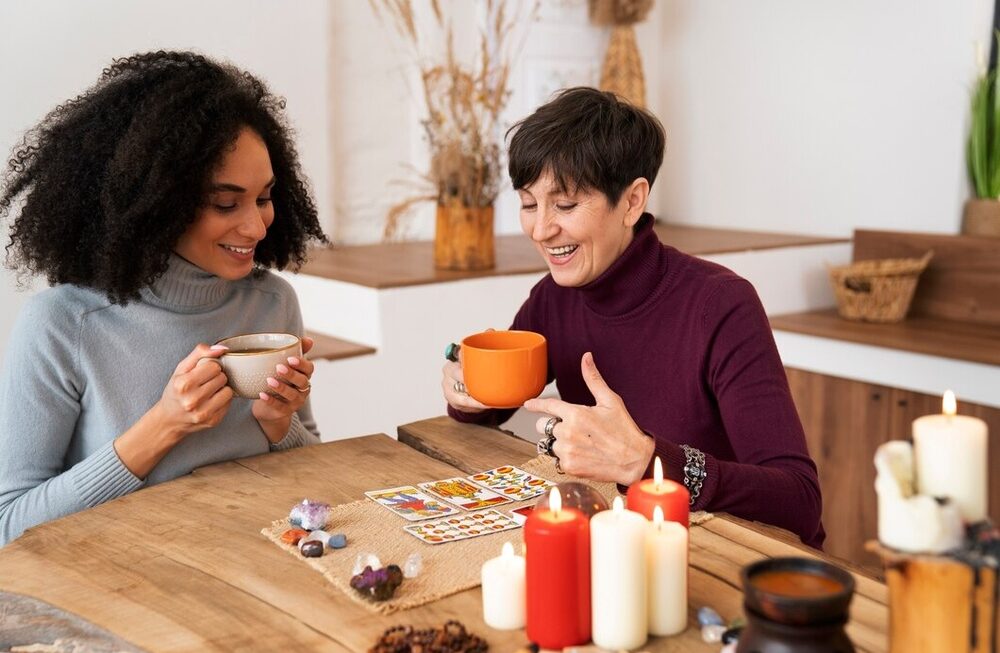This is the penultimate step in our journey through the major weights of the 36-point matching system. Having covered Gana (6 points for Temperament), we now focus on Bhakoot Kuta, which carries a highly significant 7 points. This factor is not merely about emotional compatibility; it is a profound assessment of material and existential harmony, determining the couple’s shared fate regarding prosperity, family, and freedom from major afflictions.
The Geometry of Destiny: Bhakoot Koota and Existential Harmony (7 Points)
In the advanced stages of Ashtakoot Milan, the factors shift from assessing individual nature to forecasting the mutual fate the couple will weave together. Bhakoot Koota, with its powerful weight of 7 points (Gunas), is the second most critical measure in the entire 36-point matching system.
Often categorized simply as emotional compatibility or sign compatibility, the true scope of Bhakoot Koota is far wider. It assesses the relative placement of the bride’s and groom’s Moon signs (Rashis) in the celestial sphere. This geometrical relationship between the two signs is used to predict the couple’s shared destiny regarding material prosperity, family well-being, health, and longevity.
The analysis of Bhakoot matching is vital because it forecasts the financial and familial environment of the marriage. A low score here, known as Bhakoot Dosha, warns of existential crises—loss of resources, destruction of the family unit, or separation—making this a powerful predictor of marital endurance.
As a senior content writer specializing in mature and insightful Vedic topics, I will offer a detailed, unique perspective on Bhakoot Koota, focusing on the spatial relationships of the Moon signs and the grave consequences of a significant Dosha.

The Spatial Science: How Bhakoot Matching is Calculated
The calculation of Bhakoot Koota is unlike any other factor in the kundli matching system. It does not rely on planetary friendship (Graha Maitri) or Nakshatra nature (Gana). Instead, it relies on counting the number of houses between the two Moon signs, creating six specific spatial relationships:
The Six Bhakoot Relationships (Shad-Ashtaka)
The two Moon signs are placed in one of six relationships, relative to each other. These relationships are the most common source of the highly feared Bhakoot Dosha (or Rasi Dosha), which carries specific, dire warnings:
| Count (Houses from Partner’s Moon Sign) | Bhakoot Relationship | Prognosis (Dosha) | Existential Warning | Points Awarded |
| 1st / 7th | Shubha (Auspicious) | Excellent Harmony, Longevity. | Mutual growth and strong partnership. | 7 Points |
| 2nd / 12th | Dosha (Inauspicious) | Loss of Wealth and Poverty. | Financial instability and severe debt. | 0 Points |
| 3rd / 11th | Shubha (Auspicious) | Prosperity, Financial Gain. | Mutual advancement and resource fulfillment. | 7 Points |
| 4th / 10th | Shubha (Auspicious) | Success, Material Comfort. | Career stability and domestic happiness. | 7 Points |
| 5th / 9th | Dosha (Inauspicious) | Loss of Children or Progeny Issues. | Problems with inheritance, legacy, and fertility. | 0 Points |
| 6th / 8th | Dosha (Inauspicious) | Sickness, Misfortune, Death/Separation. | Severe health crises, accidents, or chronic separation. | 0 Points |
The Crux: Only three combinations—1/7, 3/11, and 4/10—yield the full 7 points. The other three combinations—2/12, 5/9, and the most feared 6/8—result in a 0-point score and signify specific, challenging karmic lessons the couple must face together.
The OREO Analysis: Bhakoot as a Test of Endurance
The 7 points assigned to Bhakoot Koota reflects the reality that while love can survive personality conflicts (Varna, Vashya), it rarely survives chronic poverty, the loss of a child, or severe health crises. This factor tests the couple’s ability to maintain a supportive environment against existential threats.
Opinion: Bhakoot Koota is the Ultimate Test of Material and Familial Destiny
Opinion: Bhakoot Koota is one of the most powerful and non-negotiable checks in the kundli matching system, accurately forecasting the couple’s ability to build and sustain a prosperous family structure free from severe, chronic loss.
Reason: Material Security Enables Emotional Connection
Reason: While spiritual growth is the ultimate goal, the Vedic system is fiercely pragmatic. It recognizes that if a couple faces perpetual financial strain (2/12 Bhakoot) or chronic health issues (6/8 Bhakoot), the emotional connection (which is what emotional compatibility truly measures) will inevitably fray under the pressure of survival.
The Moon, which governs the Rasi, also governs the mind and emotions. When the two Moon signs are placed in an inauspicious relationship, they emotionally deplete each other by draining the marriage’s vital resources (wealth, health, children). This draining effect is why the Dosha results in a total 0-point penalty.
Example: The Crisis of the 6/8 Bhakoot (Shad-Ashtaka Dosha)
The 6th and 8th house relationship is the most severe Bhakoot Dosha, known as Shad-Ashtaka. The 6th house rules disease, debt, and enemies, while the 8th house rules chronic illness, longevity, and sudden transformation/death. A couple in this relationship faces a high risk of one partner being a chronic source of stress (debt, illness, or enemies) for the other.
The 0 points awarded signal that their sign compatibility is such that their co-existence weakens their overall vitality and increases the risk of premature separation or chronic discord. The man’s sign sitting 6th from the woman’s means he activates her 6th house issues, and vice versa. This is a deep, karmic misalignment that challenges the fundamental promise of support in marriage.
Restatement: Financial and Health Compatibility Are Emotional
Therefore, a high Bhakoot Koota score promises effortless financial flow, a supportive family life, and mutual health. A low score requires not just remedies, but a complete and absolute commitment to financial discipline, health consciousness, and a spiritual acceptance of the potential for profound loss, proving that true emotional compatibility is measured by how one handles shared adversity.
The Existential Weight of the Bhakoot Doshas (0 Points)
The Bhakoot Dosha is one of the very few afflictions in the kundli matching system that is often advised to be mitigated at all costs, due to its severe material consequences.
1. The 2/12 Relationship (Dwirdwadasha Dosha)
This represents a placement of expense (12th house) and assets (2nd house). A couple in this relationship is astrologically designed to have one partner constantly draining the other’s resources, leading to severe lack of wealth (Dhana Hani) and perpetual debt. Their goals for resource accumulation are inherently mismatched, undermining the stability of the home.
2. The 5/9 Relationship (Pancha-Navama Dosha)
The 5th and 9th houses rule intelligence, children, and destiny. The 5/9 Bhakoot Dosha specifically warns of problems with children (loss or difficulty in conception/raising) and conflicts over spiritual or philosophical paths, threatening the couple’s shared legacy and ultimate purpose.
Bhakoot and Emotional Compatibility
Why is this considered a measure of emotional compatibility? Because the Moon sign is the ruler of the mind and emotions. When the two Moon signs are in a 2/12 or 6/8 relationship, the minds are positioned to trigger the other’s hardest life issues. It ensures that the emotions are constantly stressed, generating fear, anger, and anxiety around survival. The lack of sign compatibility becomes a lack of peace.
The 7 points are given to reinforce the reality that stability and security are the ultimate nourishment for the emotional bond. Without them, love struggles to survive.
Conclusion: The Anchor of Material Love
The Bhakoot Koota is a crucial, high-weighted 7-point factor in the Ashtakoot Milan that tests the material, familial, and health-related destiny of a union. It is a powerful form of sign compatibility that looks beyond personality to the shared karmic challenges.
The wisdom of Bhakoot matching is clear: the ability to build and sustain life together is paramount. A high score promises mutual prosperity and support. A low score demands extreme consciousness: the couple must not just ‘love’ but actively mitigate the financial, health, or familial burdens that their combined planetary geometry is programmed to attract.
By confronting the warnings of the Bhakoot Dosha with maturity and discipline, a couple transforms a potential threat to their existence into a profound commitment to mutual security.












